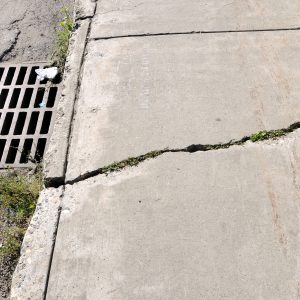Is cracking concrete normal?
Concrete is one of the strongest building materials that exist, but that doesn’t make it indestructible. Cracks in concrete happen often and can form due to many different reasons. Sometimes, cracks are completely unavoidable, and just because they are there doesn’t necessarily mean it was installed incorrectly.

Why does concrete crack?
Though concrete is very durable, many factors can cause cracks to form.
- Drying and thermal shrinkage: water and cement particles dry out or expand with temperature.
- Restraints: if concrete wants to move because of loading, it can feel confined.
- Settlement: ground around a foundation can settle, which is potentially dangerous.
- Corrosion: steal rebar corrodes inside the concrete, causing it to expand and crack.
How to prevent cracks in concrete
Again, cracking can be inevitable at times, but there are ways to prevent it from happening. Durability and appearance fall into the hands of whoever is installing the concrete. When it is installed correctly, it can maintain its looks and strength for years, preventing potential cracks. A few ways to prevent cracking are:
- Properly curing the concrete
- Adding control joints
- Mixing the correct amount of water to the concrete mixture
- Compacting the base
- Adding steel reinforcement
You can use different products to repair cracks and keep them from growing, but it’s best to hire a professional, especially if the crack is large. Hiring someone who is experienced will allow the repair to run smoothly and quickly.
If the concrete was installed correctly, don’t worry if a few cracks form years later. Cracking concrete is normal, and you usually don’t have anything to worry about unless the crack is actively growing. In this case, you will want to get it repaired.
